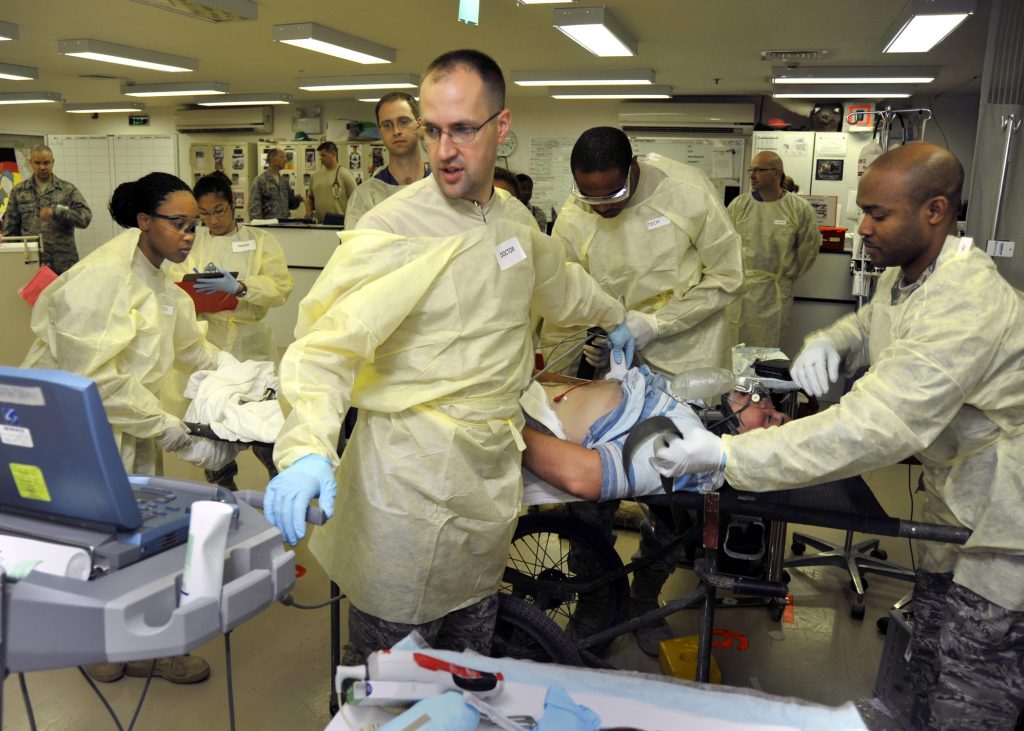12.2 Stress in the Health Care System
Stress within any health care profession occurs as a result of the challenging and dynamic conditions experienced in day-to-day work. See Figure 12.1[1] for an illustration of stress in a health care environment. Nurses and health care professionals are taxed with supporting clients and families in times of extensive life stress and change. Individuals who seek out care often experience rapid life changes as the result of a new diagnosis, altered body function, death of a family member, or significant mental distress. Nurses are frontline staff members who help clients and their families navigate these health stressors. It can be difficult to provide frontline support without taking on some of the stress encountered. As clients and families navigate their feelings of fear, frustration, anxiety, and anger, nurses are often the support members who first hear and react to these feelings. It is important to recognize the constant barrage of these emotions can take a toll, and it is challenging to not assume this emotional burden.

In addition to the emotional burden of providing support for multiple clients and their family members, nurses experience a variety of other stressors inherent to the health care environment itself. These stressors include issues such as environmental stress, increased workload, changing practice conditions, lack of resources, communication barriers, unfavorable working conditions, frequency of engagement with a variety of personnel, challenges in care coordination, workplace violence, alarm fatigue, and staff turnover. Research has identified that the variety of stressors experienced by nursing staff result in inherently greater levels of stress than that experienced in the wider working population.[2] Therefore, nurses must acknowledge the variety of stressors they encounter within the profession and identify strategies to mitigate these forces.
Nursing is charged with emotional situations and topics even on days when no other situational stressors have significant impact. One cannot participate in the significant conversations that accompany health care decision-making, provide patient education, and promote individual coping without acknowledging these conversations are more impactful than deciding, “What should we make for dinner?” By acknowledging this inherent job stress, nurses recognize that eliminating stress within the profession is not possible. There will always be a level of stress that accompanies the health care environment, and this underscores the importance of stress identification, mitigation, and incorporation of stress-reduction strategies.[3]
- “Emergency_medicine_simulation_training_exercise_in_Balad%2C_Iraq.jpg” by Robert Couse-Baker is licensed under CC BY 2.0 ↵
- Waddill-Goad, S. (2016). Nurse burnout: Combating stress in nursing. Sigma Theta Tau International. ↵
- Waddill-Goad, S. (2016). Nurse burnout: Combating stress in nursing. Sigma Theta Tau International. ↵

